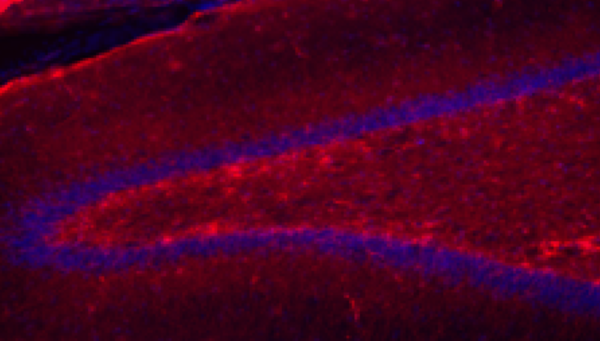Characterizing the association between hippocampal reactive astrogliosis, anhedonia-like behaviors, and neurogenesis in a monkey model of stress and antidepressant treatment
(1) Cheltenham Ladies’ College, Cheltenham, United Kingdom, (2) Mount Sinai Icahn School of Medicine, New York, New York; SUNY Downstate, Brooklyn, New York
https://doi.org/10.59720/21-069
With the intention to better understand the biological mechanism of Major Depressive Disorder (MDD) and antidepressants, we looked at the effects of stress and selective serotonin reuptake inhibitors (SSRIs) on a measure of astrocyte reactivity in nonhuman primate (NHP) models of stress. We focused on hippocampal astrocytes because they regulate both neural activity and neurogenesis and have been characterized as a crucial cell type in regulating inflammation in response to stress. During stress, astrocytes become reactive and lose the ability to support neuronal function. In addition, reactive astrocytes can increase inflammatory signals and contribute to behavioral deficits associated with stress. For this project, we hypothesized that stress would lead to astrocyte reactivity in the NHP hippocampus, and that SSRI treatment would be associated with decreased astrocyte reactivity. We also hypothesized that astrocyte reactivity would be positively correlated with anhedonia-like behaviors and reduced neurogenesis in the hippocampus. In this study we show that chronic separation stress in NHPs leads to increased signs of astrogliosis in the NHP hippocampus. Furthermore, we show that measures of increased astrogliosis inversely correlate with adult hippocampal neurogenesis in NHPs, as well as with higher anhedonia scores. Overall, our findings were consistent with our initial hypotheses that hippocampal astrogliosis is an important mechanism in stress-induced cognitive and behavioral deficits. By observing the association between adult separation stress, SSRI treatments, and astrocyte reactivity in the NHP hippocampus, we aimed to provide insight into the non-neuronal cellular changes that occur in the NHP hippocampus during stress and antidepressant treatment.
This article has been tagged with: